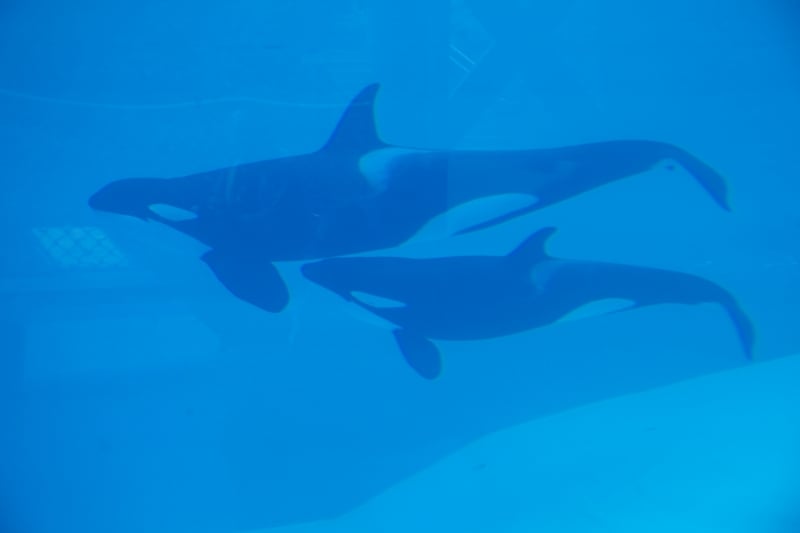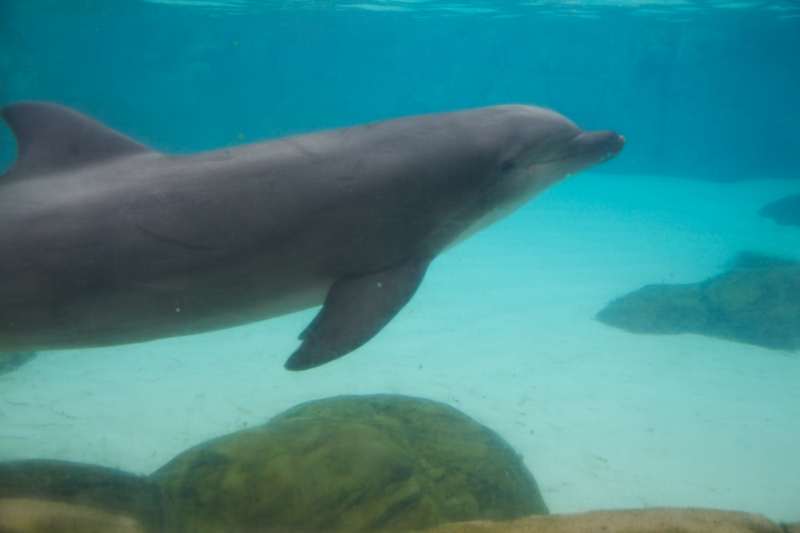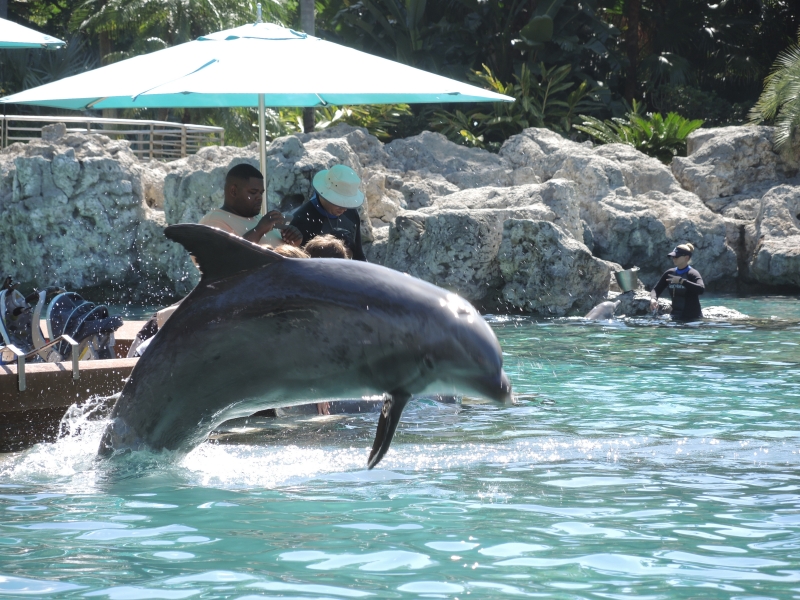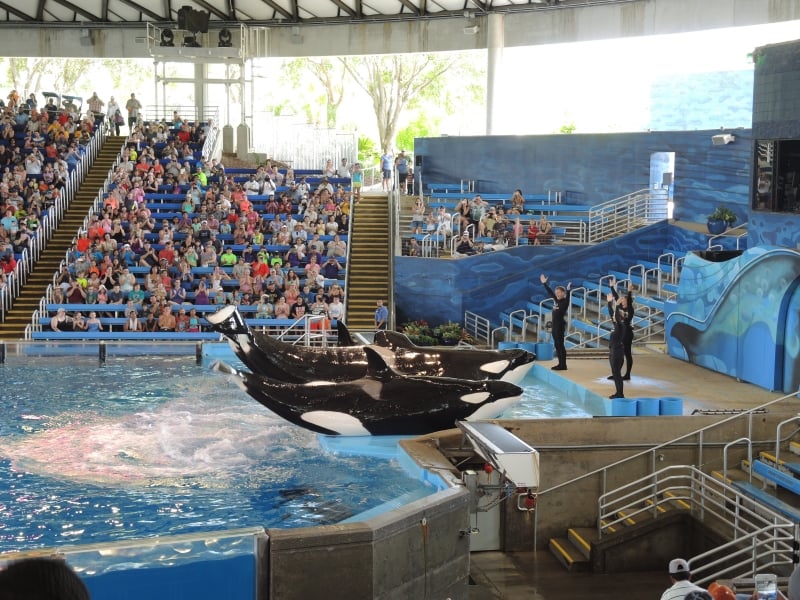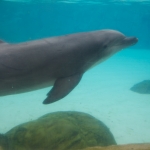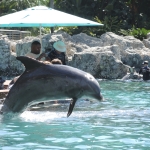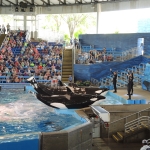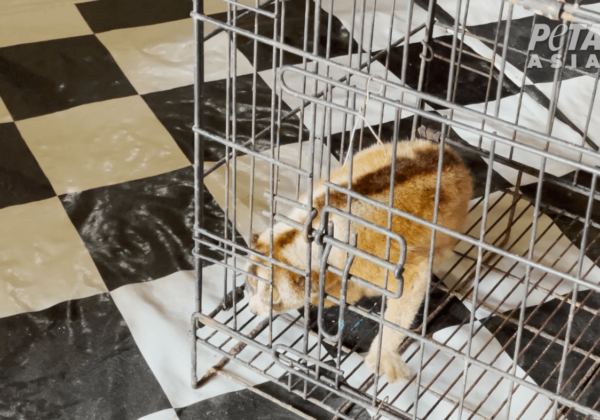The Truth About Marine Parks
In marine parks around the world, orcas exist in tanks barely longer than the length of their bodies, dolphins are used as tourist photo props, and fish of all species live in a world measured in liters. These intelligent, social, and complex animals are denied everything that is natural and important to them.
In their rightful ocean home, dolphins and orcas live rich lives filled with activity and interests. Swimming together in extended pods, they travel vast distances every day in the open ocean. In captivity—where their worlds are reduced from fathoms to meters—they can do nothing but swim in circles in tanks that are the equivalent of bathtubs.
Families Torn Apart
Countless marine animals have been taken from the ocean and placed in tanks. But just like us, orcas and dolphins share family bonds and have social networks. In the wild, orcas stay by their mothers’ sides for life. Dolphins, too, have strong family relationships and travel in pods. If one of their own is captured, other members of the pod may try to save them.
Wild captures typically involve boats chasing dolphins into shallow water where they can’t escape the surrounding nets. Unwanted dolphins who are released may die from shock, stress, or pneumonia. In 2014, during the annual dolphin slaughter in Taiji Cove, Japan, a shocking 500 dolphins were corralled, and many were stabbed to death. Others were separated and sold to amusement parks. The dolphins frantically attempt to escape.
Captivity Kills
Orcas and other dolphins navigate by echolocation, but in pools the reverberations from their own sonar bounce off the walls, which can cause acute distress. World-renowned oceanographer Jean-Michel Cousteau compared the keeping of orcas in tanks to “a person being blindfolded in a jail cell.”
Orcas in the wild can live for decades. (A matriarch named Granny is more than 100 years old!) A recent independent study shows significantly lower average orca longevity in captivity.
Captive marine animals, including sea lions, seals, dolphins, and whales, have died from a wide variety of causes, including swallowing coins, heatstroke, and conditions related to living in contaminated water. As a result of the extreme stress of captivity, some captive dolphins have reportedly taken their own lives by hitting their heads against the sides of pools or refusing to come up for air.
Let Them All Be Free
Governments around the world are recognizing that dolphins, orcas, and other cetaceans do not belong in tanks. India’s Ministry of Environment and Forests banned the keeping of cetaceans in captivity. Israel and Australia both prohibit the importation of dolphins for use as entertainment. Vietnam and Malaysia have banned the exportation of marine animals, with Malaysia also banning the importation of native marine species. Mainland China, Taiwan, Hong Kong, Indonesia, Malaysia, the Philippines, Singapore, and Thailand have all banned the live capture of cetaceans in their waters.
What You Can Do
Please don’t visit marine parks, zoos, or aquariums. Encourage your local aquarium to create more space for rehabilitating (and releasing) injured wildlife by refusing to breed or bring in more animals.
You can also leaflet outside the gates of marine parks, write letters to the editors of local publications, pressure officials to avoid subsidizing these facilities with taxpayer money, and ask local government officials to support legislation that prohibits the capture or restricts the display of marine mammals.

